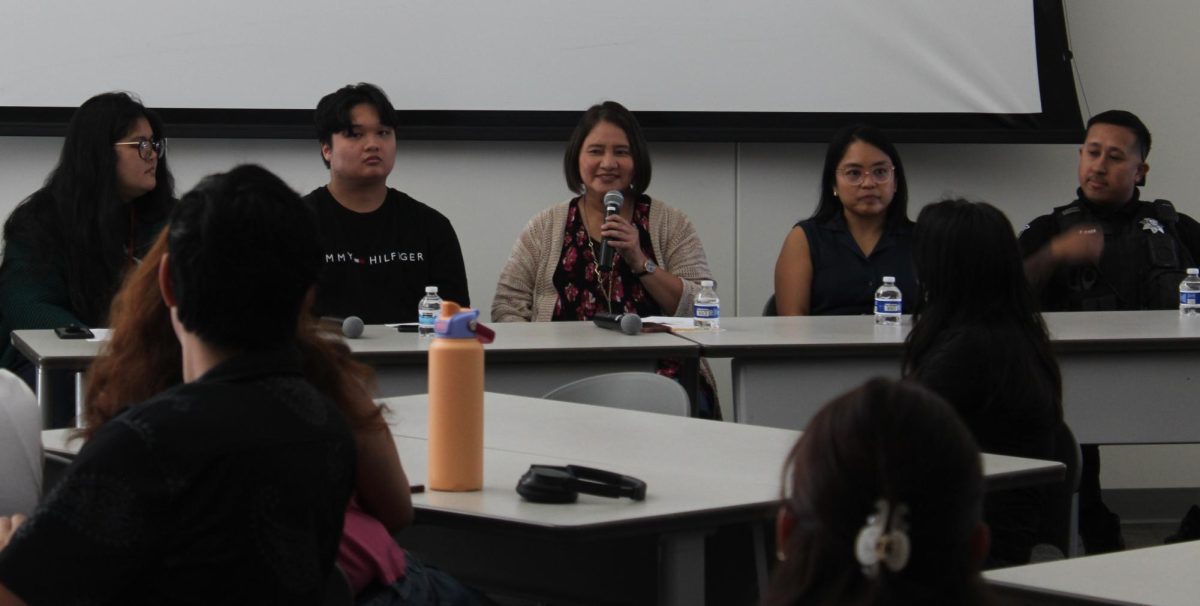The Asian Pacific Islander Desi American Hawks center kicked off Filipinx American History Month with a panel of students, staff and faculty sharing their immigration stories on Oct. 7.
With the theme being “From Quotas to Communities: Filipino American Migration and Movement,” Raul Pasamonte, the director of the APIDA Hawks center, said he wanted this event to bring awareness to Filipino American history and foster a sense of community.
“We have a saying, ‘no history, no self.’ If you don’t know your history, you don’t know yourself,” Pasamonte said. “Filipino history is not read in the books, so we wanted to make sure the students know their stories and histories.”
The panelists shared stories of how their families came to the U.S. and why.
“We came here for a better life, better opportunities just like most Filipinos, ” said 20-year-old business major and panelist Angelo Arsega.
Arsega said that his past shaped who he is today and made him realize his struggles are similar to those around him. He said that the opportunities and experiences are different.
“It led me to realize that everything that I want in life, I would have to work twice as hard as a normal person who grew up here would,” Arsega said.
Another panelist, Hawk CARES student support specialist Gwen Adao, said that her family split up. Some of her family wanted to stay in the Philippines, and some left because of the long battles with the laws and policies, she said.
“My mom’s side never left the Philippines and decided to live their lives out there, but my dad’s side of the family, one of the siblings decided ‘I want out. I don’t want to farm anymore. I want to get a good education for myself and for my kids,’ so she just ran with it,” Adao said.
Adao said some of the immigration laws affected her family. The Filipino Repatriation Act of 1935 granted single adults a one-way trip to the U.S., but under the Immigration and Nationality Act of 1965, there was a restriction on how many people could come to the states leaving many families separated according to History House and Elton B. Stephens Company.
“For a long time, my father, mother, brother and I all lived in separate spaces,” Adao said. “I was in Sacramento, my dad was in the Bay Area, my brother was going to school somewhere in the Philippines outside of our town, and my mom was living in our house where we were at and to this day we are still not whole.”
Librarian Rochelle Perez said she felt the pressure to succeed because she came to the U.S. as an international student and because of the stereotypes forcing her to meet expectations. Instead, Perez said she focused on what her degree would mean for her future.
“For me now, it means a legacy. It’s an education for my kids, so when I leave this world, just like my parents leave this world, there is something that I could pass on.”
Adao said that even though their migration stories have some differences, they are all connected in some way or another.
“Our migration stories are very similar, it just carries different weights in terms of emotional capacities and how we managed all of that,” Adao said.

